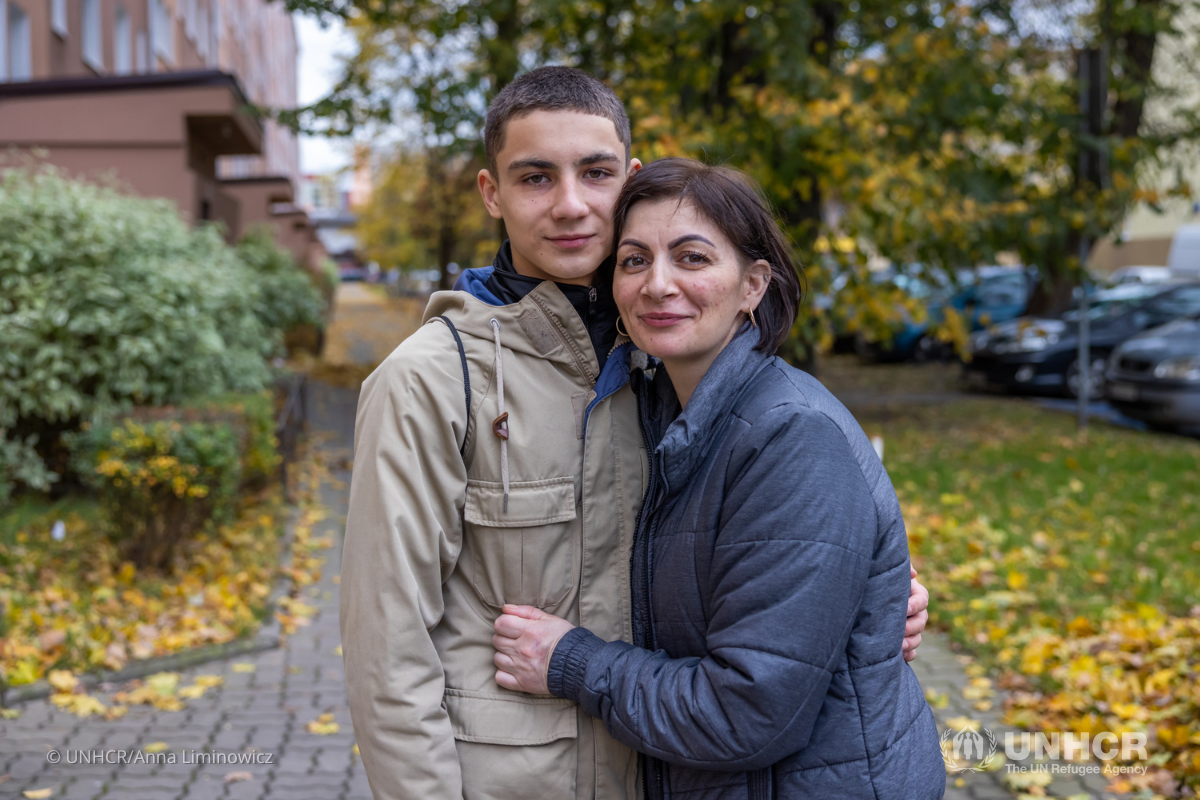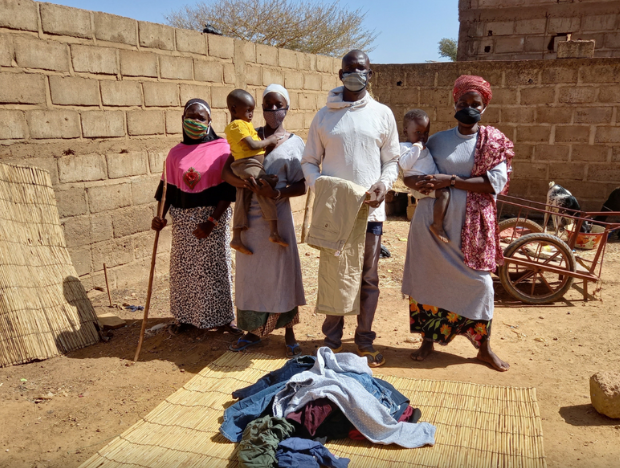Five ways education continued for refugees during COVID-19
The coronavirus pandemic is having a dramatic effect on the lives of school age children. Schools are closed, exams cancelled and parents – including in forcibly displaced communities – are taking on bigger roles in their children’s learning.
Adapting to the limitations imposed by COVID-19 has been especially tough for the 85 percent of the world’s refugees who live in developing countries. Mobile phones, tablets, laptops, good connectivity, affordable data and even radio sets are often not readily available to displaced communities.
Ensuring that children continue to learn during a pandemic has required resourcefulness, innovation, invention and collaboration. Here are some examples of how UNHCR, the UN Refugee Agency, is helping children continue to access educational opportunities in the first months of the COVID-19 outbreak.
1. Radio broadcasting in Dadaab refugee complex
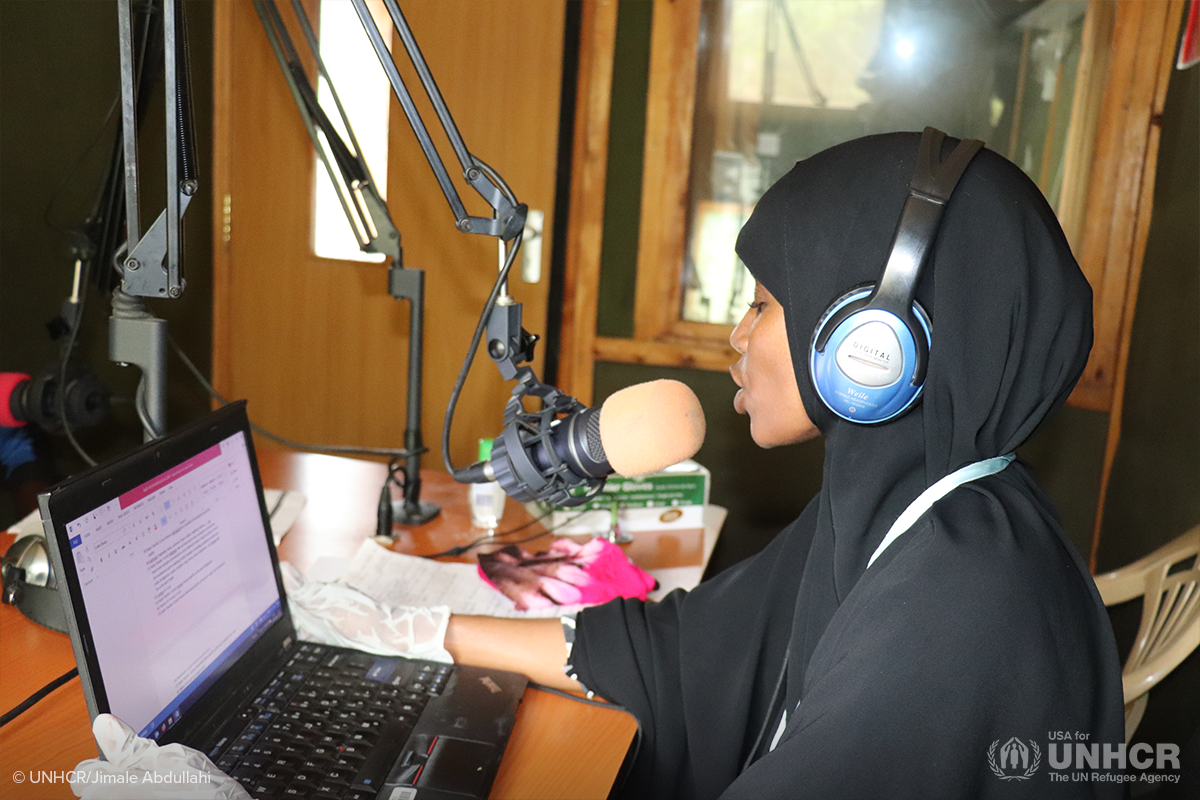
Ordinarily, Amina Hassan would stand at the front of her class of about 100 children at a school in the Dadaab refugee camp in Kenya. These days, she is a radio broadcaster instead – with one of the world’s more unusual phone-in radio shows.
Dadaab has more than 67,000 students attending 22 primary and six secondary schools, where refugee children and youth, along with the host community students that share their classrooms, receive a certified Kenyan education. Amina’s school, Umoja Primary School in Dadaab’s Hagadera camp, has more than 1,200 students. After the closure of learning institutions countrywide due to COVID-19, a lot of curious minds were left without regular lessons.
Amina, who is qualified as a teacher in Kenya, took to the airwaves to broadcast lessons to her Grade 5 class on a community station called Radio Gargaar, meaning “help” or “assistance” in Somali. “They sometimes call me at the studio to ask questions,” she says. “I believe they are learning even though I can’t see them.”
2. Classrooms on wheels in Bolivia
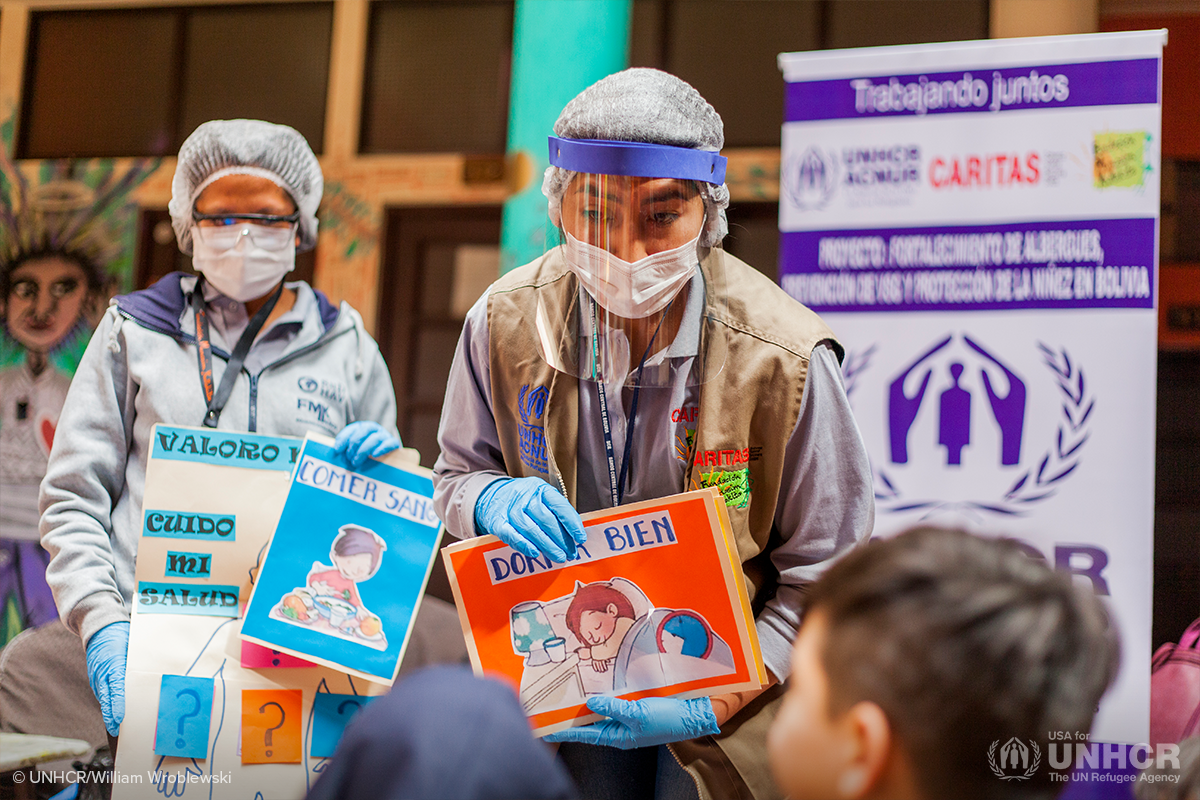
Dancing, singing, painting – and learning how to protect yourself from coronavirus – have been on the agenda for a group of young Venezuelans in La Paz, Bolivia. But instead of having to go to school for these activities, the school has come to them.
Aula Movil (Mobile Classroom) is a project being piloted by UNHCR and partner organizations for Venezuelan refugee and migrant children who have had no access to formal educational, distance learning or recreational activities since lockdown.
The service functions as an informal classroom for the children and their families, giving them an important outlet for their energy and creativity. Even though the staff are dressed in personal protective equipment from head to foot, the youngsters soon get used to them and absorb plenty of information about the virus that has drastically changed their lives. In addition, the class has provided psychosocial support and engagement for the Venezuelan community.
“Quarantine has generated anxiety and stress among the population. That is why we are developing these activities,” said Ana Llanco Aguirre, a coordinator for the Munasim Kullakita Foundation, a Bolivian non-governmental organization.
3. Offline computer education in Uganda
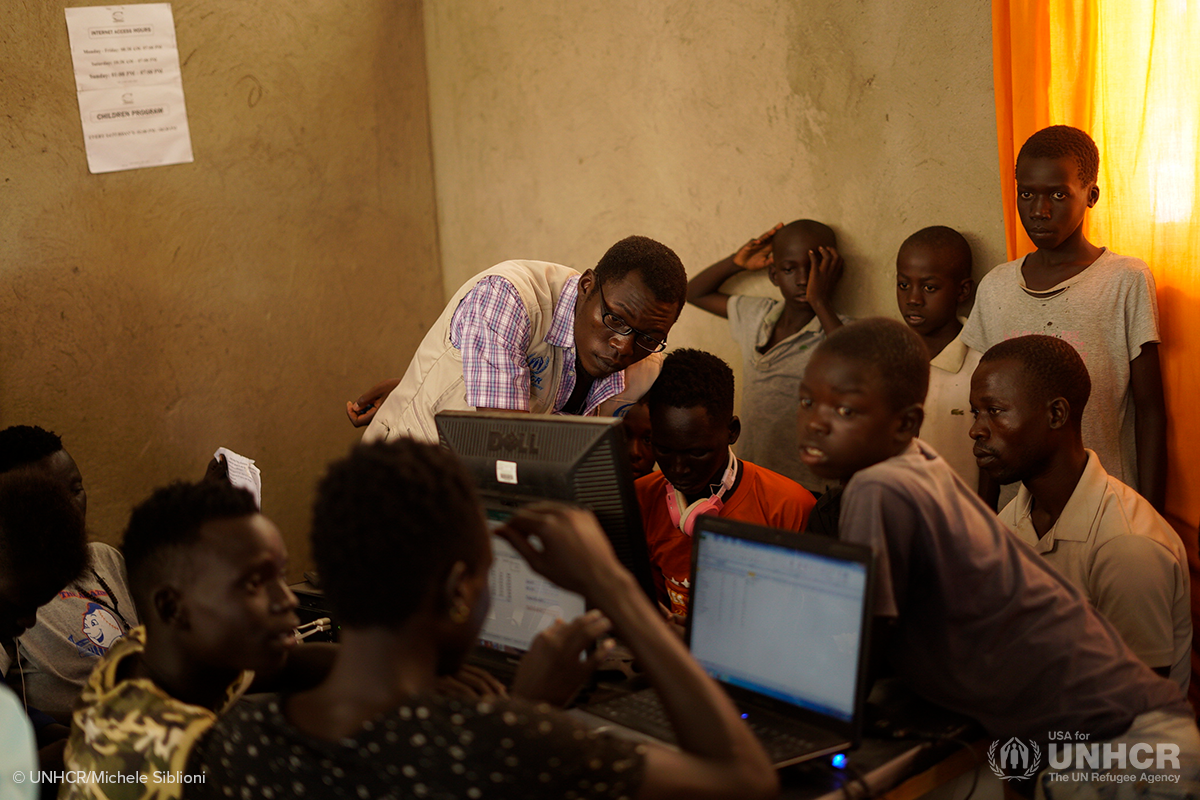
Thanks to a partnership dating back to 2018, UNHCR and an array of partners in Uganda have accelerated a connected education project giving teachers and students access to a wide variety of open resources.
Many displaced communities live in areas where internet connectivity is poor or non-existent and where getting hold of smart devices is out of the question. This makes the switch to online learning extremely challenging. Fortunately, an open source learning platform called Kolibri is designed to get around those issues by being tailored for a variety of low-cost, off-the-shelf devices and other “legacy” hardware in places where connectivity is poor or non-existent. Once the content has been installed, that device can share it with others over an offline local network.
For the past two years, teachers and refugee learners have been able to use Kolibri to access science, technology and mathematics (STEM) and life skills content aligned with the Ugandan national curriculum. Since the onset of COVID-19, UNHCR and partners have boosted this process by funding the supply of tablets preloaded with content aimed at secondary-level students who are preparing for national exams. UNHCR is continuing to distribute these devices to learners within the refugee and host communities.
4. Parents keep education going in Chad
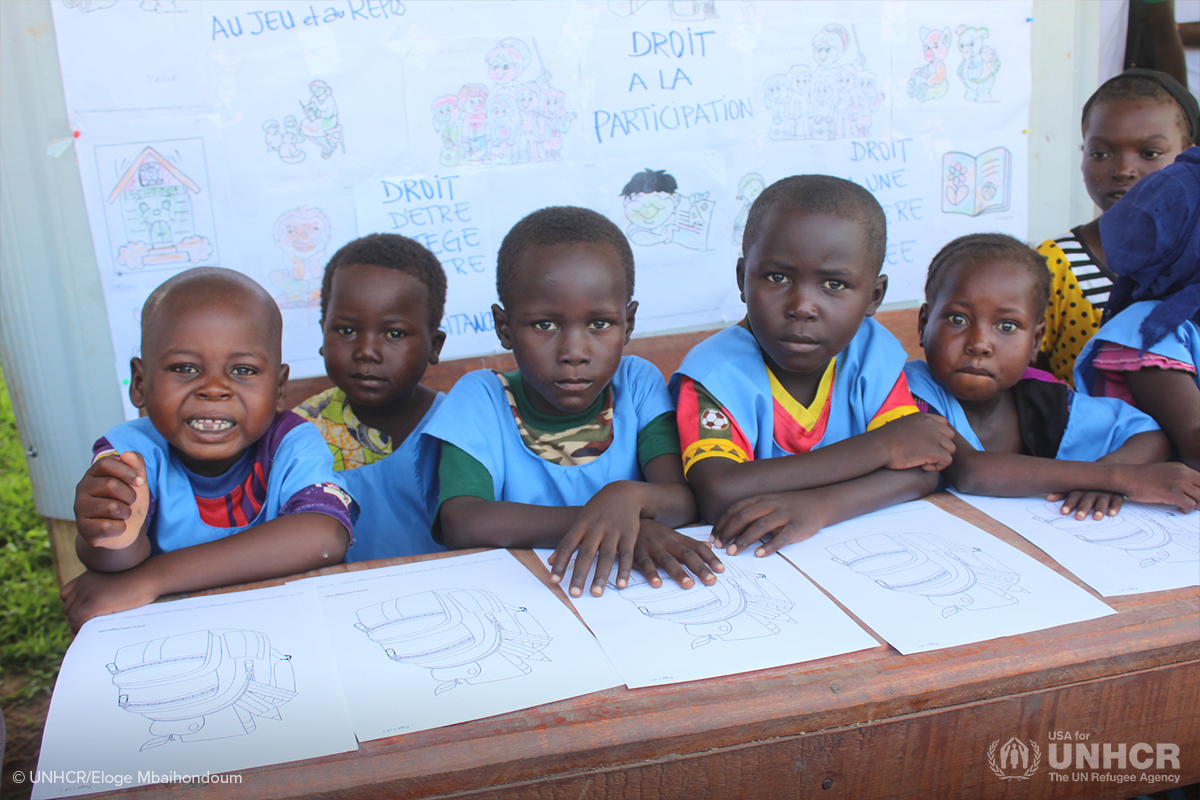
The traditional Parent-Teacher Association (PTA) runs fundraising events for schools, helps out with homework clubs and provides extra hands for activities in and out of the classroom when a school finds itself short staffed. The refugee camps of eastern Chad, where more than 300,000 Sudanese have been living for more than a decade, are no exception. PTAs in these displaced communities, along with parents from host communities, have long been active in helping to manage these national schools - from raising awareness of educational opportunities to monitoring enrollment and drop-outs, as well as finding ways to raise money for the repair and upkeep of school buildings.
During the pandemic - with schools closed and with a national distance learning program hardly accessible in remote areas such as refugee camps - the PTAs have gotten even busier. Duties have included raising awareness among schoolchildren and their families of measures to keep COVID-19 at bay, as well as keeping them informed on how to keep up with homeschooling, supervising the dissemination and weekly collection of homework for teachers to mark and visiting the most vulnerable students.
5. Open air classrooms in the DRC
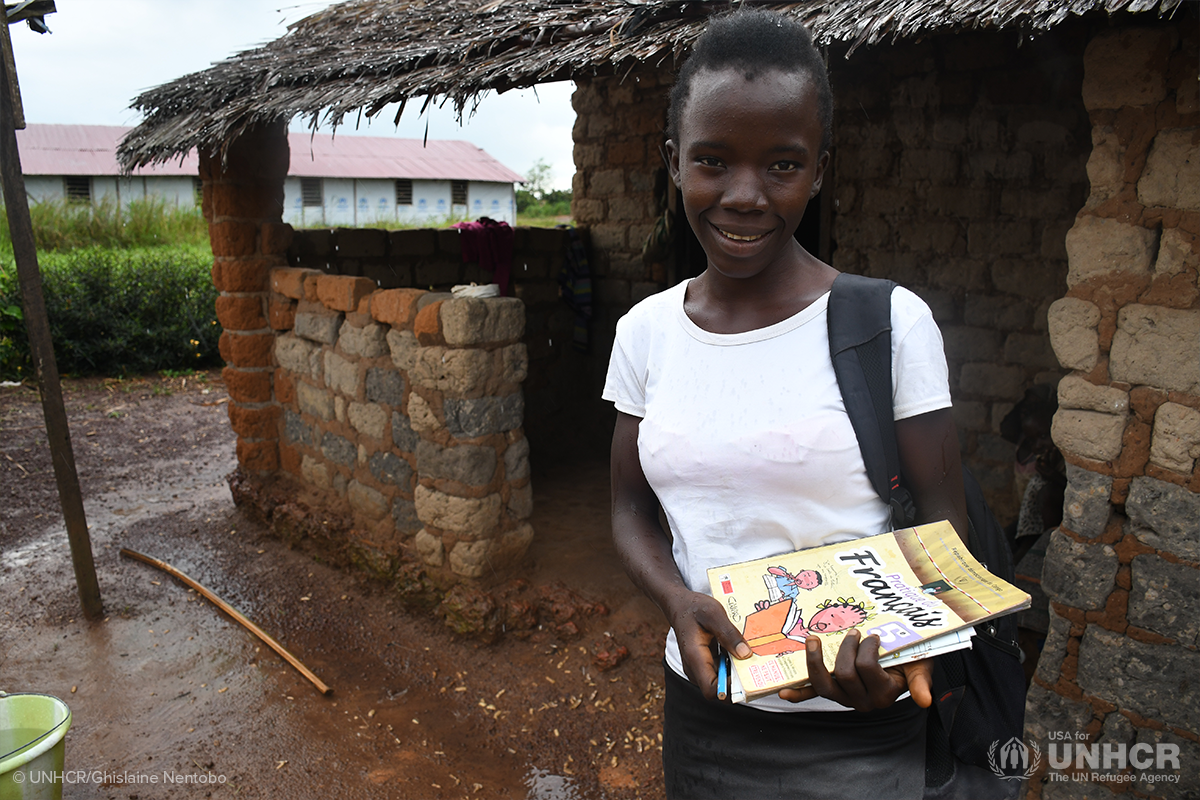
In the Democratic Republic of the Congo (DRC), more than 600 refugee students from the Central African Republic (CAR) have been able to continue their preparations for the national primary school final test thanks to the tireless work of teachers who are offering outdoor, socially distanced learning opportunities.. Jean Aimé is one of several teachers from the host community who have been striving to keep their young students busy with schoolwork.
For the past two months, he has been organizing learning sessions at Inke refugee camp, in North Ubangi Province, outside the homes of his students. His classes are limited to six students at a time to make sure physical distancing requirements are met.
“We distributed stationery to the students, but we often lack basic school furniture, such as proper chairs and whiteboards, as refugees’ homes are not equipped with such things,” he says. Even without the usual school facilities, these outdoor classes are vital. “We are doing the best we can as the national primary education final test is essential for students to enroll in secondary school.”
Angele, 15, who fled to the DRC in 2013, is one of the students benefiting from the outdoor classes. “I feel confident about taking the test, and lucky because not everyone has been able to continue learning during the pandemic,” she says. “It is important to study if we want to become someone in society, to serve our country and our family.”
How you can help…
Due to the coronavirus pandemic, millions of refugee children around the world are out of school. According to UNHCR, many may not be able to return when classrooms reopen. Your generous support can help protect education for displaced youth around the world. Please make a donation today to ensure these children are able to continue pursuing their dreams.

